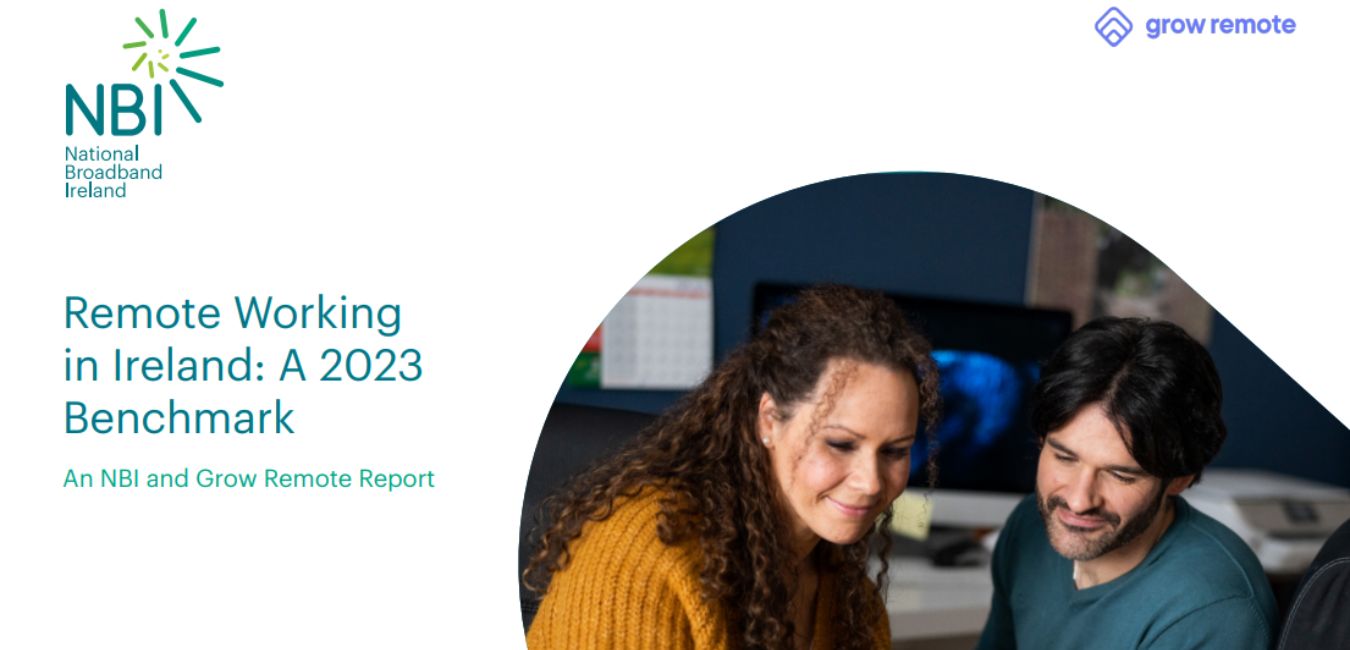NBI and Grow Remote research reveals generational differences in attitudes towards remote working and highlights the cultural changes needed to make it work
Over half (55%) of Gen Z workers feel remote and hybrid working will have a positive impact on their career advancement compared to just 23% of 45–54-year-olds according to a new study launched by National Broadband Ireland (NBI) in partnership with Grow Remote.
The 18-24 years age group was the only one where a majority of respondents agreed remote working benefits career advancement, with a much smaller proportion of women (27%) believing it to be the case.
The study polled 1,236 workers across the Republic of Ireland to present one of the most comprehensive national views of how attitudes and behaviours towards remote working are evolving since the pandemic. The study also gained insight from 71 members of the Grow Remote network to compare results with workers who have sought remote working opportunities with support from the emerging social enterprise.
Providing new intelligence into the perceptions of Irish workers, the survey found 57% of all workers felt remote working in Ireland affords them better access to job opportunities. Workers also recognised the opportunities remote working presents to their employers, with 60% stating that it opens up the opportunity to improve diversity and inclusion.
Demonstrating the potential pitfalls which still need to be overcome, over half of employees (51%) in Ireland say that employers need to do more to ensure remote workers are not missing out on feeling part of a company’s culture. The figure amongst Grow Remote members rose to an overwhelming 78% feeling that remote workers are missing out on feeling part of company culture, a strong indicator showing the mindset of those workers who have been some of the earliest adopters.
One in four workers (25%) felt it is a major risk that remote and hybrid workers feel less included, and nearly the same amount (23%) feel remote working will have a negative or very negative impact on their career advancement.
Joanne Mangan of Grow Remote, said: “We regularly hear from company leaders that remote work can negatively impact the career development of younger workers in the early stages of their careers, but this research clearly shows that younger workers do not share this perception. This research also shows that the appetite to continue working remotely remains strong across the workforce with the main factors proving to be a better work / life balance, greater flexibility, reduced commuting times, cost savings, and reduced stress. However amongst older age groups in business there is a perception that remote or hybrid working can impact negatively on important factors such as career development. Women are also less likely than men to believe remote working has a positive impact on career advancement. This clearly demonstrates that important cultural shifts are needed in the workforce if we’re to harness the potential of remote working to benefit employees, employers and the wider community.
“The publication of the report, along with its findings, will be widely discussed at Grow Remote’s National Summit to be held on 8th and 9 th June in Portlaoise. This event will bring together decision makers, remote workers, community leaders, innovators and policy makers to delve into the challenges and opportunities of remote work.”
Recognised as one of the most transformational infrastructure projects that will empower remote working, the National Broadband Plan will provide futureproofed high-speed broadband to over 560,000 homes, farms, schools and businesses once complete. Responsible for delivering the ambitious project, NBI has over 38,000 premises live on the network to-date, and over 147,000 premises are available to place their order.
Peter Hendrick, CEO of NBI, commented: “The pandemic turbocharged the trend in remote and hybrid working that was already gaining ground. Over the course of the last three years, businesses have had to respond quickly, both culturally and technically, to embrace new ways of working and ensure they are secure, with the software and systems to be digital first. This survey offers compelling insight into the changes that are shaping the modern workforce and the mindset changes needed to unleash opportunities to improve productivity.”
For more information, view the full study here



